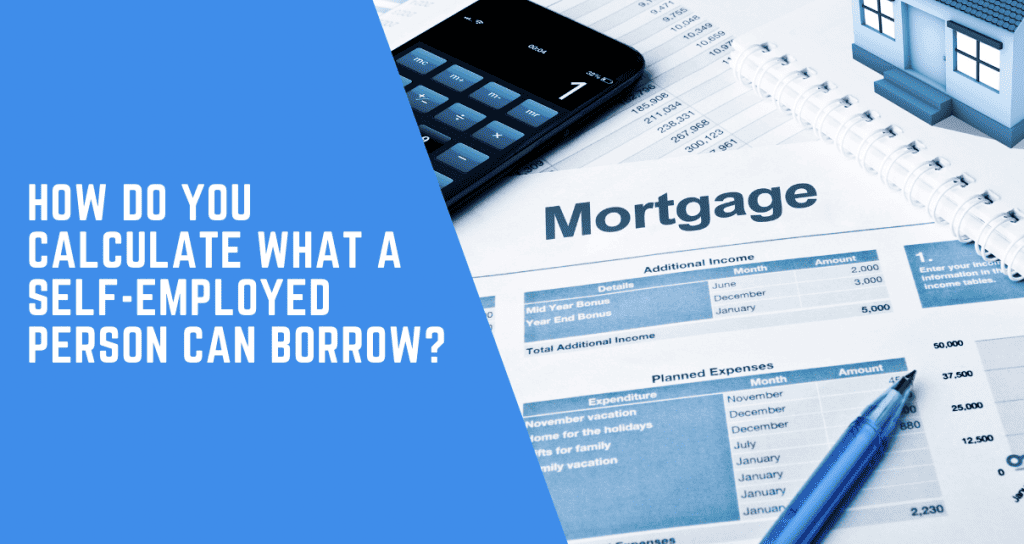Self-Employed Mortgage Calculator
Get in touch with Jones & Young today to learn how we can support your self-employed mortgage application, or get started with our self-employed mortgage calculator to see how much you could borrow.
As Featured In:



Are You Self Employed Looking For A Mortgage?
Leave your contact details and let our experts call you back to discuss tailor-made mortgage solutions for contractors.
Self-employment is rising, and all lenders accept self-employed clients, but some are more accommodating than others. If a high street lender has turned you down, this isn’t the end of the road for your dreams of getting on the property ladder. Working with specialist lenders with experience supporting self-employed applicants will increase your chances of success.
To Get The Best Mortgage For Your Needs, Chat With Our Experienced Self Employed Mortgage Brokers Now!
As a specialist self-employed mortgage broker, we can help to match you with specialist lenders who would love to work with you. Many lenders use net income figures after expenses (taxable income) for assessments. However, some lenders will consider the gross day rate pay for contractors or freelancers with a day rate. To enhance your application, we can help maximise your position as a self-employed person or sole trader to include company and retained profits.
If you’re using our self-employed mortgage calculator today, why not arrange a call back from our team? We’d be happy to guide you through the next steps in your application.
Table of Contents
Everyone’s Circumstances Are Different
We recognise that everyone is different; our advice and support reflect this. While self-employed applicants typically struggle to access lending, it’s important to note that some lenders require only 1 year of trading history, whereas others require 2 years. We can help you read between the lines of a mortgage application to ensure your position is as strong as possible. We can also give you access to lending products with preferential rates from various lenders.
A Mortgage That Works For You
When you are self-employed, income streams can radically differ from those of a traditional employee. When matching you with lenders, we consider your total or annual income, as we recognise that your monthly income could fluctuate throughout the year. For limited company directors, some lenders consider salary and dividends, while a few may use net profits. Contractors and CIS sub-contractors can often use their gross day rate instead of taxable income. We can then help guide you in presenting your application in a way that many lenders assess to be the profile of a financially responsible person.
SPEAK TO MARK FOR EXPERT MORTGAGE ADVICE!
Helping self-employed professionals, contractors, freelancers, and small business owners navigate the mortgage process and get the best possible deal.
Jones & Young: The Self-Employed Mortgage Experts
We know that securing a mortgage when you are self-employed can be more complex. But we also know it isn’t impossible. With the right advice and guidance, you could soon achieve your dreams of homeownership. Our free self-employed mortgage calculator can help you understand how much you can afford to borrow and what steps you need to take to secure a self-employed mortgage. When you’re ready to take the next steps, we’ll be there to guide you.

How Do You Calculate What A Self-Employed Person Can Borrow?
The actual amount that self-employed contractors can borrow depends on a few factors:
INCOME
The primary factor that lenders consider when calculating how much a self-employed individual can borrow is their income. Lenders typically look at your average annual income over the past two years to determine a stable and consistent income level. However, some lenders may only require 1 year of trading history. For limited company directors, income can be assessed based on salary, dividends, or net profits for some lenders.
CREDIT HISTORY
Lenders will also look at full credit history details to determine your creditworthiness and risk level as a borrower. This includes looking at your credit score, outstanding debts or loans, and missed payments or defaults. A strong credit history can increase the amount you are able to borrow, while a poor credit history can result in lower borrowing limits.
DEPOSIT
Having a larger deposit can also increase the amount a self-employed person can borrow. This shows lenders that you have saved and are able to contribute a significant amount towards the property, reducing their risk as a lender. It’s possible to secure a mortgage with as little as a 5% deposit, but you can expect to pay higher interest rates at this loan-to-value level.
DEBT-TO-INCOME RATIO
Aside from income and credit history, lenders will also look at your debt-to-income ratio. This is the percentage of your monthly income that goes towards paying off debts such as loans, credit cards or any other financial commitments. A lower debt-to-income ratio can increase the amount a self-employed person can borrow, as it shows you have enough disposable income to make repayments on the mortgage.
Lenders typically offer a mortgage between 4 and 5 times your annual income, but this can vary depending on the lender and your circumstances. The factors above will heavily impact how much you can borrow. Use our self-employed mortgage calculator to see how much you could borrow.
90-95% Loan to Value (LTV)
Loan to Value (LTV) options typically 90-95%
Trusted Advice
Clear and concise advice about the best options for your needs.
Communication
Helping customers cut through the noise to understand things their way.
Save Money
The difference between how your income is calculated can save you thousands.
Specialist Rates
Most competitive rates ensure the best price for the customers
Experience The Jones & Young Difference In Mortgages
At Jones & Young, we understand the unique challenges faced by securing a self employed mortgage. Our dedicated team specialises in navigating the self employed mortgage landscape, ensuring you have the best shot at not only gaining approval but also securing the most favourable rates.

Helping Customers Access Lending For Their Dream Homes
We are the essential bridge between self-employed applicants and lenders. We can help you enhance your position and ensure your application is as attractive as possible to lenders.
Industry-leading advice
Rooted in an in-depth understanding of the financial and mortgage sector, our advice amalgamates the latest industry insights with a tailored approach, providing strategic, astute guidance that navigates the complex mortgage landscape with adept precision and expertise.
High Street Lenders
We collaborate with renowned High Street Lenders, leveraging our connections to present your application to reputable financial institutions, thereby providing you with many mortgage options aligned with your financial standing and aspirations, ensuring a robust, reliable lending experience.
Clear & straightforward recommendations
Our recommendations are crafted with absolute clarity and simplicity, ensuring you comprehend every option and implication, enabling you to make well-informed decisions amidst the financial jargon and complexities whilst ensuring each suggestion is finely tuned to your unique financial narrative and objectives.

Get Started With Jones & Young
Securing a mortgage is one of the biggest financial decisions you will make, so we take the time to match you with the mortgage providers best suited to your needs. It’s also worth noting that self-employed individuals can access up to 95% loan-to-value (LTV) mortgages. To get started with our self-employed mortgage calculator, fill in a few details about your situation and then request a callback. We can then guide you through the application process to secure your mortgage or mortgage in principle.
Do You Have Any Questions?
Got questions about self employed mortgages? Jones & Young are here to help! Contact us for expert advice tailored to your unique needs. Let’s secure your ideal mortgage today!
Clients Speak: Real Success Stories With Jones & Young
Self-Employed Mortgage FAQs:
Still have questions about your self-employed mortgage? We’ve answered the most common questions below:
How Much Can I Borrow For a Mortgage When Self-Employed?
This varies depending on your individual circumstances and the lender you are working with. As a self-employed individual, it may be more difficult to prove your income than someone traditionally employed. Lenders typically look at your average income over the past few years and may require additional documentation to qualify, such as tax returns or business financial statements. Speaking with a mortgage advisor is important to determine how much you can borrow based on your unique situation.
Is it More Difficult to Get a Mortgage if You Are Self-Employed?
It can be more challenging to get a mortgage when you are self-employed than when you are traditionally employed. This is because lenders may perceive self-employment as a higher risk due to the fluctuation of income and the potential for business failure. However, if you have a good track record of consistent income and strong financial standing, it is still possible to secure a mortgage as a self-employed individual. It’s important to work with a mortgage advisor with experience working with self-employed clients who can help you navigate the process.
Can I Get a Mortgage With 12 months of Self-Employment?
Yes, it is possible to get a mortgage if you have only been self-employed for a short period. However, this may make it more challenging to prove your income, and lenders may require additional documentation or offer a lower loan amount. It’s essential to have a strong credit score and savings to increase your chances of being approved for a mortgage. Lenders assess things like your bank statements for evidence of responsible spending.
How Can I Improve My Chances of Getting Approved For a Self-Employed Mortgage?
To improve your chances of getting approved for a self-employed mortgage, it’s important to have a strong credit score, a proven track record of steady income, and good financial standing. This may include having a healthy business cash flow, a solid track record of consistent income, and maintaining good credit habits. Working with an experienced mortgage advisor who can guide you through the application process and help you find the best lender for your specific needs is also helpful.
GET IN TOUCH








